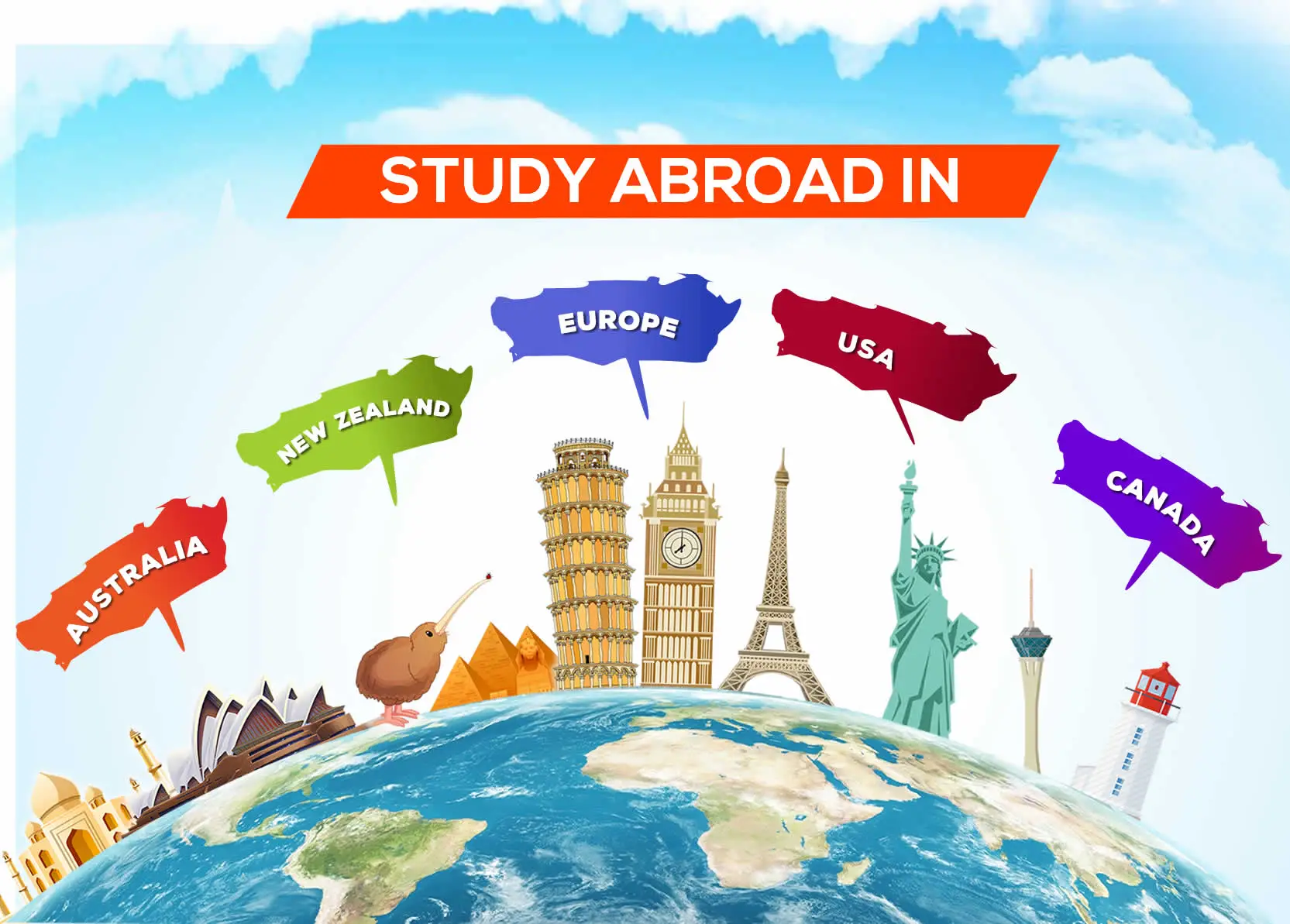
How to Study Abroad: A Step-by-Step Guide for 2025
Dreaming of studying abroad in 2025? It’s an incredible opportunity to gain a world-class education, immerse yourself in a new culture, and open doors to global career opportunities. However, planning to study abroad can seem daunting, with many steps involved. Here’s a step-by-step guide to make the process manageable and stress-free.
Why Should You Consider Studying Abroad?
Studying abroad is more than just earning a degree. It’s a chance to experience new cultures, develop independence, and grow personally and professionally. International education often provides access to top-notch institutions, diverse perspectives, and valuable networking opportunities. Employers value the adaptability and global outlook gained from studying abroad, which can give you an edge in the job market.
1. Decide What to Study
The first step is identifying the field of study that aligns with your interests, career goals, and academic strengths. Research different programs and assess their potential to advance your aspirations. Think about industries in demand and how the skills you acquire will benefit your long-term goals.
2. Decide Where You Want to Study
Choosing a destination is equally important. Consider factors like the quality of education, cost of living, cultural environment, language, and opportunities for work or internships. Popular study destinations like the US, UK, Canada, and Australia each have unique offerings, so explore options thoroughly.
3. Choose Your Study Program
After deciding on a country, focus on finding a suitable program. Research universities and their offerings to ensure they match your academic needs. Check rankings, faculty profiles, course content, and student reviews to narrow your options.
4. Budget for Expenses
Studying abroad involves significant expenses, including tuition, accommodation, travel, and daily living costs. Create a realistic budget to understand how much funding you’ll need. Explore part-time work opportunities, scholarships, and grants to help cover these costs.
5. Apply to Multiple Universities
Applying to several universities increases your chances of acceptance. Make a list of your preferred institutions and submit tailored applications that highlight your strengths. Be mindful of application deadlines and prepare all necessary documents, such as transcripts, recommendation letters, and personal statements.
6. Pass Your English Language Test
If you’re studying in an English-speaking country, you’ll likely need to pass an English language proficiency test like IELTS, TOEFL, or PTE. Research the required scores for your chosen universities and schedule your test well in advance to ensure sufficient preparation time.
7. Apply for Scholarships
Scholarships can significantly ease the financial burden of studying abroad. Look for opportunities provided by universities, governments, or private organisations. Ensure that you meet the eligibility criteria and submit your applications before the deadlines.
8. Confirm Your Place
After receiving admission offers, decide which university is the best fit for you. Consider factors like program content, location, and financial aid. Confirm your place by paying the required deposit and securing your spot.
9. Apply for a Student Visa
Many countries require international students to have a student visa. Start the application process early, gather required documents such as your admission letter, financial proof, and medical records, and follow the guidelines provided by the embassy or consulate of your chosen country.
10. Plan Your Travel
Book your flight as soon as your travel dates are confirmed to save costs. Make a checklist of essential documents like your visa, passport, and admission letter to keep handy while traveling.
11. Arrange Accommodation
Decide where you’ll live during your studies. Options include on-campus housing, private apartments, or homestays. Research and book your accommodation in advance to avoid last-minute stress.
12. Decide What to Pack
Packing smart is crucial. Check the weather in your destination and pack appropriate clothing, personal essentials, and any academic materials. Keep in mind airline baggage restrictions and make room for items you may purchase locally.
13. Prepare for Culture and Lifestyle
Adapting to a new culture can be challenging, but preparation can ease the transition. Learn about local customs, traditions, and languages. Engage with online communities of students at your chosen university for tips and advice.
Studying abroad in 2025 is a life-changing journey that offers immense personal and professional growth. By following this step-by-step guide, you’ll be well-prepared to embark on your adventure and make the most of your experience. So, take the leap and get ready to explore the world!